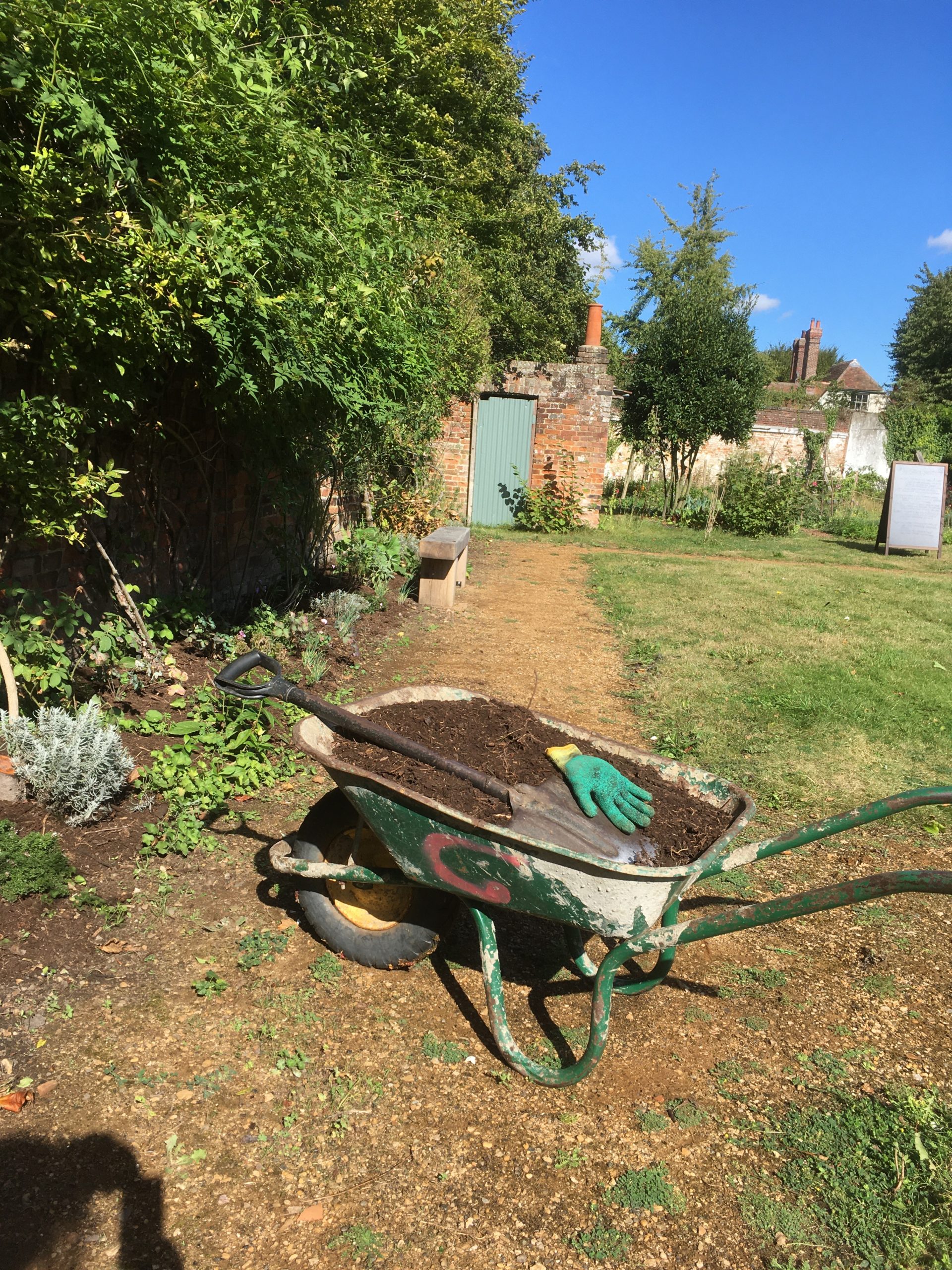The recent dry weather has been perfect for the annual task of mowing the meadow and we took our opportunity last week to get this job completed. The meadow hay will now lay in situ for a week, to let the last few seeds disperse, before we rake it all up for composting.
Meadow-mowing is a sure sign of summer turning to autumn, along with the dew-heavy mornings and dozens of spiders’ webs glistening in the early sunlight when we start work.
To make room in the compost area for the meadow hay we need to move everything along a stage, meaning that all the green waste that has been composting for over a year in the end bin is now ready to be liberally spread onto the borders to break down over the autumn and winter. It’s always an extremely satisfying task, digging out spadefuls of this free, organic material. All the prunings, grass cuttings and annual weeds from last year have become a rich, dark brown, friable mulch. The plan was to empty the first bin completely, spreading it along the rose border, then the “nearly ready” 6 month old compost in the second bin gets turned into the empty first bin, and the more recent woody, leafy cuttings in bin 3 get shredded into bin 2.
It was all going like clockwork until we hit a slight a snag…..halfway through digging out the first bin the spade cut through a hidden wasps’ nest buried at the back. In the resulting explosion of very upset wasps one of us got stung five times.
Luckily it was early, before opening, and so no-one was around to witness a gyrating, swearing gardener madly slapping at all parts of her body. Hopefully no-one spotted her running into the meadow, shedding clothes and trying to flap out the furious wasps that had infiltrated down collars, up trouser legs and even into boots. One very sore and tender half hour later, doused in cider vinegar (very good to soothe the stinging) and having filled in the Accident Book it was decided that the compost area would be out of bounds for the rest of the day. With the nest now thoroughly broken to pieces we hope that the critters will disperse to find another, better site. Maybe we’ll be safe to start our composting again next week.
Some interesting facts about wasps:
- Only female wasps can sting.
- Wasps are very beneficial pollinators, they pollinate just as effectively as bees
- They play an important role in pest control in the garden – preying upon just about every type of aphid / caterpillar / fly.
- When they sting they release a pheromone that warns other wasps nearby that there is a threat or danger, this in turn will make other wasps react aggressively to see off the threat.

